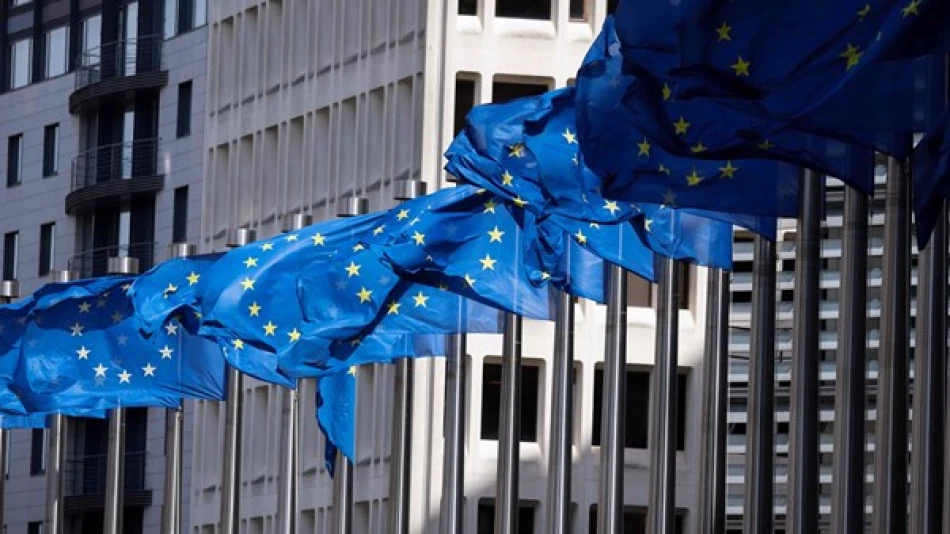
EU Pledges Stricter Digital Platform Regulations: Ensuring Compliance in the Digital Landscape
EU Digital Chief Defies Trump's Tariff Threats Over Big Tech Regulation
The European Union has drawn a firm line in the sand against Donald Trump's protectionist stance, with digital affairs chief Henna Virkkunen declaring that the bloc will continue enforcing its landmark digital regulations despite the U.S. President's threats of retaliatory tariffs. This escalating standoff highlights a fundamental clash between American tech dominance and European regulatory sovereignty that could reshape global digital governance.
Brussels Stands Ground on Digital Sovereignty
Virkkunen took to X (formerly Twitter) on Monday to reaffirm the EU's commitment to its Digital Services Act (DSA) and Digital Markets Act (DMA), emphasizing that these rules protect fundamental rights including freedom of expression. "I will continue to enforce them, for our children, our citizens and our companies," she declared, directly challenging Trump's characterization of EU regulations as harmful to American tech giants.
The defiant stance underscores Brussels' determination to maintain what it calls its "sovereign right" to regulate how technology companies operate within its borders—a market of 450 million consumers that represents too lucrative an opportunity for any major platform to abandon.
The Stakes: Two Competing Visions of Digital Governance
Europe's Regulatory Approach
The DSA and DMA represent the world's most comprehensive attempt to rein in Big Tech's power. The DSA focuses on content moderation, requiring platforms to remove harmful content and increase transparency around algorithmic decision-making. Meanwhile, the DMA targets anti-competitive practices by designated "gatekeepers" like Apple, Google, and Meta, forcing them to allow greater interoperability and choice for users.
These laws have already forced concrete changes: Apple now allows alternative app stores in Europe, Google faces restrictions on self-preferencing its services, and Meta must offer ad-free subscription options. The financial impact is substantial—companies face fines of up to 10% of global annual turnover for DMA violations.
Trump's Counter-Offensive
Trump's threat of additional tariffs against countries he accuses of targeting American tech companies represents a return to his first-term playbook of using trade policy as a diplomatic weapon. However, this approach faces significant practical challenges: the EU remains one of America's largest trading partners, and escalating trade tensions could harm U.S. economic interests as much as European ones.
Global Implications for Tech Regulation
The EU-U.S. standoff occurs against a backdrop of worldwide regulatory tightening. The UK has implemented similar online safety legislation, while countries from Australia to India have introduced their own big tech regulations. Even traditionally laissez-faire jurisdictions like Singapore are exploring platform governance frameworks.
This global trend suggests that the "Brussels Effect"—where EU regulations become de facto global standards—may prove more durable than Trump's tariff threats. Major tech companies have already invested billions in compliance infrastructure and may find it easier to maintain EU-compliant global standards rather than fragment their operations.
Market Reality Check
For investors and tech companies, the message is clear: European digital regulations are here to stay, regardless of U.S. political pressure. Companies that have already adapted their business models—like Apple's alternative payment systems or Google's choice screens—are likely to maintain these changes rather than risk regulatory backlash.
The standoff also signals that the era of unregulated global tech expansion is definitively over. Companies planning European market entry must now factor compliance costs into their business models from day one, while established players face ongoing operational complexity and potential fines.
Virkkunen's direct communication to the U.S. Congress, emphasizing that EU laws "are not subject to extraterritorial jurisdiction by the United States or any other country," represents more than diplomatic posturing—it's a declaration that the global internet will increasingly be governed by a patchwork of national and regional rules, with Europe leading the charge toward greater platform accountability.
Most Viewed News

 Layla Al Mansoori
Layla Al Mansoori






